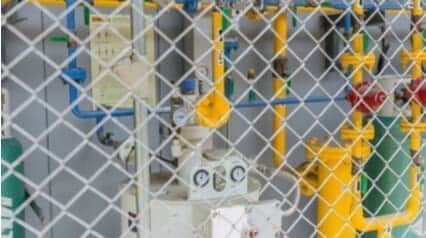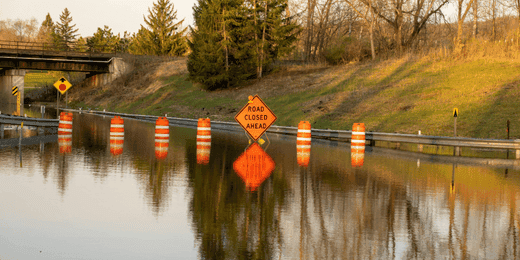Gas Safety: Tips & FAQ’s
Keep your home and workplace safe from chemical, fire, and explosive hazards brought by the use and containment of flammable and dangerous gases

Published 17 Sept 2025
Article by
4 min read
What is Gas Safety?
Gas safety is the combination of practices and safety procedures that reinforce the controlled use and proper containment of potentially dangerous chemicals and flammable gases. It involves the inspection and maintenance of gas appliances and equipment in homes and in workplaces to keep workers and the general public safe.
Why Do You Need to Perform Gas Safety?
In addition to helping protect workers and the public against exposure to chemical,fire, and explosive hazards brought by the use and storage of flammable and harmful gases, performing gas safety will help parties required by law, such as landlords and business owners, to stay compliant with applicable regulations (e.g. UK’s HSE and USA’s OSHA ) and continuously operate without risk of disruption,penalties, or business closure.
Hazards of Exposure to Dangerous Gases
Useful but potentially dangerous when its release is not controlled and used correctly, natural gas can leak in homes and in the workplace and lead to suffocation should it reach dangerous levels, not to mention cause fire or fatal explosion if exposed to sources of heat.
By being aware of the types of dangerous gases and chemicals present in the home and the workplace, and by following gas safety and health tips and proper handling, storage, and disposal procedures, you can help keep everyone safe against the hazards of exposure to dangerous gases.
Improve your EHS Management
Cultivate a safe working environment and streamline compliance with our EHS solutions.
Gas Safety Tips
Following gas safety tips can help workers, private homeowners, and landlords protect themselves year-round from the hazards brought by the daily use of flammable and dangerous gases.
Tip #1: Chemical safety and gases are present
Workplaces are required to conduct risk assessments in order to know what hazards, such as dangerous chemicals and gases, the workers can get exposed to. Risk assessments are ultimately conducted to help come up with control measures, e.g. making sure there is enough ventilation, to protect workers and other stakeholders.
Chemical risk assessment forms can guide occupational safety officers on identifying hazardous chemicals, combustible liquids, what they’re used for, the hazard they pose, and their containment, among others, to keep the workplace safe despite the presence of the identified dangerous chemicals.
Tip #2: Use detectors and safety tools
Use detectors and other safety tools as proactive and precaution measures to protect yourself against hazards brought by chemicals and dangerous gases. Facility managers and landlords can have carbon monoxide and natural gas detectors setup that will set off alarms if they detect dangerous levels of these gases that are both tasteless, colorless, and odorless in their natural form.
Have professionals install gas appliances with safety valves that add another level of safety and control for flammable gas.
Prolonged exposure to dangerous levels of said gases has been known to cause physical and neurological damage and can lead to fatalities. Having detectors and tools in place as preventive measures can help avoid such accidents.
Tip #3: Implement safety measures
Aside from the use of detectors and safety tools, other safety measures include conducting regular equipment checks and safety inspections to make sure that all gas appliances, containment vessels, detectors, and safety tools are indeed functioning correctly all year round.
Undetected damages on gas appliances or compromised functionality of safety tools can render them useless and fail to protect the people they’re supposed to keep safe. By conducting checks and audits regularly, whether they’re required by law or not, the responsible person assigned to proactively keep homes and the workplace safe can rest assured that these areas are as safe as they should be.
Effectively Implement Gas Safety Measures
Conveniently conduct safety inspections anytime.
How SafetyCulture Can Help With Gas Safety
SafetyCulture is a trusted inspection software that is used in multiple industries to reinforce safe practices and implement processes that comply with safety regulations. Empowering landlords, business owners, safety officers, and inspectors with the ability to oversee operations in compliance with safety best practices through regular safety inspections, immediate corrective actions, automated reports, and reminders for tasks due.
SafetyCulture (iAuditor) for Gas Safety
Why SafetyCulture (iAuditor)?
Real-time monitoring updates
Quality and safety inspections and corrective actions
Automation and paperless processes and reporting
Available on Android, iOS, and the web, SafetyCulture (iAuditor) is a customizable mobile quality and safety inspection app mainly used to monitor, maintain, and improve quality and safety in numerous industries. SafetyCulture (iAuditor) offers a number of tools, as well as ready-to-use quality and safety templates that can be used by organizations and landlords where accurate data reporting, visibility, efficiency, and automated notifications are crucial for gas safety.
FAQ’s About Gas Safety:
Article by
SafetyCulture Content Team
SafetyCulture Content Contributor, SafetyCulture
View author profileRelated articles
Environmental Safety
Safety

Flood Risk Management
Read this guide to flood risk management, its importance, and the key components and strategies for this process.
Environmental Safety
Safety

A Comprehensive Guide to Stormwater Pollution Prevention Best Management Practices (SWPPP BMP)
Learn about the types of best management practices for SWPP and the steps to effectively implement them in prevention plans.
Risk Assessment
Safety

The Ultimate Guide to Emergency Preparedness and Response
Learn how you can develop an effective emergency plan and stay one step ahead of natural disasters or other catastrophes.